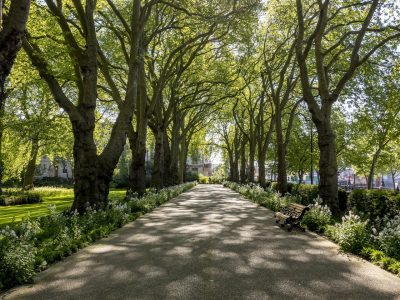
Pegasus Scholars: USA
My fellow scholar and I had the opportunity to see proceedings at various levels and in different states, from District and Circuit court through to the Supreme Court of the United States.
I was surprised at how short hearings are in the US. From case management, to trial, to appeal, matters can be dealt with in as little as two minutes. Further, domestic abuse cases happen in public with others observing as they are waiting for their cases. In one court there was a young girl, around seven years old, hearing details of physical and sexual abuse in another matter whilst she sat with a relative. This was very different to my experience of such cases at home where each is dealt with privately, and very rarely are children in the courtroom.
Many of the differences between the US approach and that of England and Wales appear to be related to the US Constitution (often due to procedural process) and the separation of powers. The processes seem to be particularly concerned with ensuring checks and balances and accountability of judicial power by giving power to the public directly. The prevalence of partisan judicial elections in some states, either for the entire process or for retention, was one issue I was exposed to that surprised me the most. This is such a different process to the appointment of judges in England and Wales by the independent Judicial Appointments Commission.
I had interesting conversations with judges and attorneys in Sacramento, California about the resources available in family and juvenile proceedings. I got the impression that there is much more substantial funding there to support parents to make the necessary changes and access support than at home. It highlighted to me the benefits of a well-funded system in proceedings regarding the best interests of children.
On a similar note, I was particularly impressed by the Collaborative Drug Court program at Sacramento Superior Court in California, for people who plead guilty to non-violent drug-related offences. They can enter the program with their sentence stayed whilst they complete it. Participants return to court regularly with the judge reviewing their progress. Over time, their attendance at court becomes less frequent to see if they can maintain progress with less judicial oversight. I was impressed by the dedication of all professionals involved in this collaborative court to ensuring good outcomes. I was fortunate enough to meet with the judge and observe hearings and truly felt the commitment from the judge and attorneys to this process and believe it is an excellent way to tackle recidivism and improve outcomes for repeat offenders. Such programs can have a real impact on the participants as well as the wider society. I hope the funding continues for such an excellent approach to the ongoing difficulties tackling drug addiction in the US.
Two topics that prompted a lot of questions of my fellow scholar and I from US lawyers and judges were the lack of depositions and jury selection in England and Wales. Every time this topic came up, whether at a local Inn event or in general conversation over drinks or dinner, mouths would fall open in shock. Almost unanimously trial judges expressed their wish that there was no jury selection in the US either. Many shared how drawn out that process could be, adding days to already lengthy trials. On the other hand, trial attorneys expressed disbelief at the idea of not having any say-so over your jury. They also tended to be surprised that we did not have depositions, but instead filed written narrative witness statements which were then explored orally at trial.
I would like to end by thanking everyone who graciously gave up their time to escort us or meet with us on our travels.
